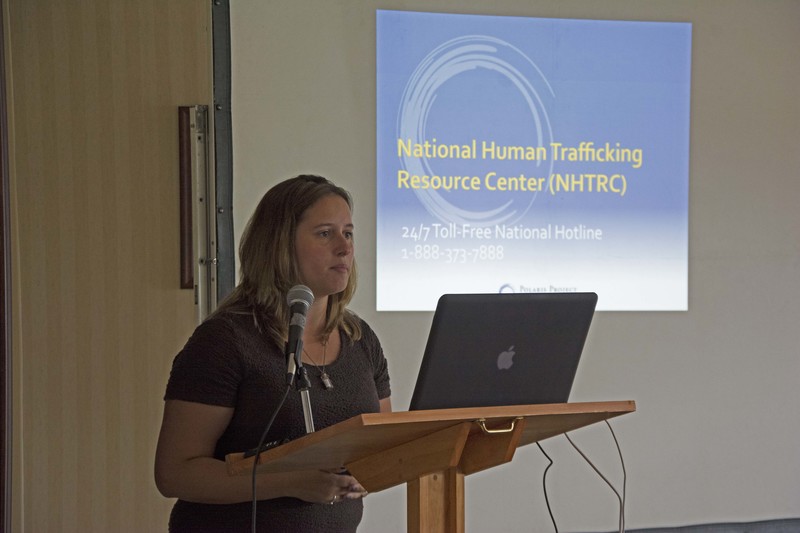An estimated 27 million people worldwide live in slavery; more than 100,000 of them are American. In the United States, human trafficking is an estimated $9.8 billion industry, the second-fastest-growing crime behind drug trafficking. Delaware is no exception to this trend, says President of Zoë Ministries Yolanda Schlabach.
“It’s very similar to any other business. There are buyers, there are sellers, consumers, retailers. There’s supply and demand,” said Schlabach during a press conference last month to recognize World Day Against Trafficking in Persons.
Human trafficking can include labor tafficking, Schlabach said, citing as examples domestic servitude; small businesses such as landscaping, construction or industrial cleaning; peddling; and large scale farming operations. Victims are often forced to work in harsh conditions and can be held by means of a threat to themselves or someone they care about.
Schlabach also cited sex trafficking, which takes various forms, from forcing people to serve as a hostess in bars and clubs to exotic dancing clubs, cantina bars, massage parlors and gentleman’s clubs. Victims of sex trafficking don’t always identify as victims, Schlabach said. They may feel an emotional connection to their captor, even though they are being controlled by that person.
While some victims of sex trafficking turn to prostitution, Lynn Sanchez, aftercare director at The Life Link in Santa Fe, N.M., says otherwise. “Sex trafficking is not prostitution. It is something far more obscure, dark, evil, difficult to discover and identify, and there is no choice involved for the trafficked person…It can’t be compared to prostitution and the glorified, patriarchal ideal of what prostitution is.”
Women who are victims of sex trafficking often have no control over their travel, frequently show signs of abuse, often work long hours for little pay and live with their employer and are not in school.
“When we find a 20-year-old who is a prostitute, more than likely she’s been trafficked since a young age,” said Schlabach, and each victim has a daily quota to fill for their trafficker. With I-95 crossing several populated areas, traffickers travel with their victims quickly and unnoticed, Schlabach said. “They travel frequently so the victims can’t run, and they become completely dependent,” she said.
Sex trafficking is not limited to male traffickers. Family members are guilty as well.
A woman identified as Samantha, who grew up in a small town in Pennsylvania near the Delaware border, was trafficked for sex from the time she was 5 years old by her mother to bring in extra money.
“My reality was I would get up for school every morning…and at night was when my nightmares would happen,” she said during a press conference, citing that she would host anywhere from one to three men per night. “I can’t tell you how many times I was tired in school,” she said. “No one caught on to this. I didn’t say anything until I was 21 or 22 years old, and no one caught on.”
There is legislation in place in Delaware to assist victims of human trafficking; Wilmington offers a Human Trafficking Court, one of about 30 nationwide.
But Schlabach says that's not enough.
Zoë Ministries is working to improve training for police officers, detectives and hospitals so they know what to look for and how to handle trafficking. They also want to help its victims.
“Our goal is to provide a home that offers physical, emotional and spiritual healing to female victims of domestic minor sex trafficking in and from Delaware,” said Schlabach. “Our vision is that every girl under the age of 18, in and from Delaware, that is freed from sex trafficking is provided the opportunity for full rehabilitation.”
“There is no reason a state as small as Delaware should have any human trafficking at all, said Schlabach. “If we all work, it can be eradicated in one to two years.”
To report a case of human trafficking, call the national hotline at 1-888-373-7888 or learn more at www.traffickingresourcecenter.org. To learn more about Zoë Ministries, visit www.zoe-delaware.org.





















































